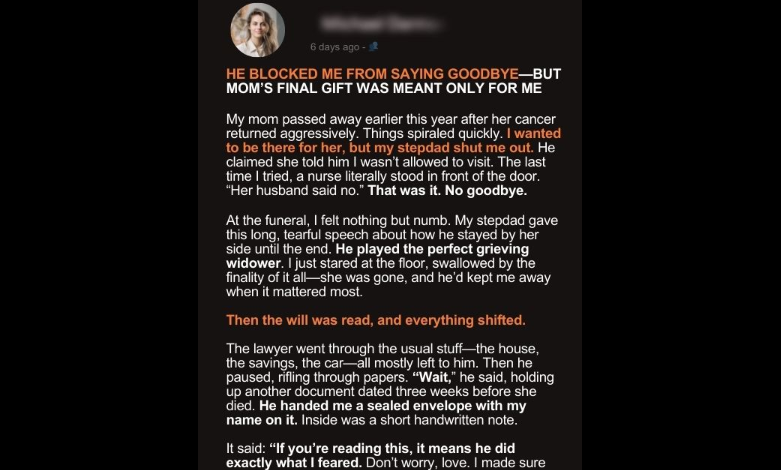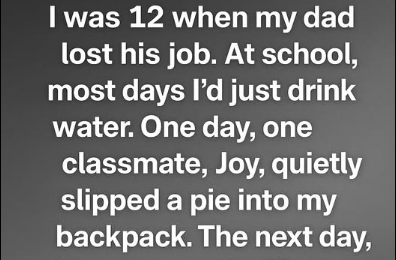It was just past midnight when the station doors opened. A woman stepped inside, carrying a worn bag and a toddler. Three more children followed her closely, visibly exhausted.
I noticed the fear in her eyes immediately. She looked like someone doing everything she could not to fall apart.
“Can I help you, ma’am?” I asked.
She looked at her children, then back at me. “We have nowhere else to go,” she said.
Those words hit hard.
I glanced at my partner. We moved quickly. Blankets were brought, some toys retrieved from the donation bin. One child clung to my leg and smiled as I handed her a teddy bear.
The woman’s eyes filled with tears. “I just… didn’t know where else to go.”
There was no need for details yet. What mattered was that they felt safe.
But I couldn’t stop thinking—what were they running from?
Her name was Marisol. She was quiet, tired, her hands trembling as she wrapped her youngest in an old blanket. Her oldest, Mateo, about ten, stood protectively at her side. The younger ones were already asleep on the floor.
Once they were settled, I asked Marisol to talk privately. We sat in a quiet corner, not far from her children.
“What’s going on?” I asked.
She hesitated, then whispered, “It’s him. Their father. He came back.”
My heart sank. “Had he been gone long?”
She nodded. “Since Mateo was a baby. He came back last week. At first he acted kind, but it didn’t take long before he started drinking, yelling, threatening us. Last night he got violent.”
“What happened?” I asked gently.
“He pushed Mateo. I told him if he ever touched them again, I’d call the police. So before he got home tonight, we left.”
“You did the right thing,” I assured her.
She shook her head. “I have no one. My family lives far away and doesn’t know about him. I’ve moved too many times to trust anyone.”
I promised to help. We set up a space where she and the children could sleep. Then I called social services for support.
The next morning, a man showed up at the station. Tall, calm, wearing a leather jacket.
“I’m looking for my wife and kids,” he said. “My name is Carlos Ruiz.”
I didn’t trust the way he spoke. Too controlled.
“They’re not here,” I said. “But I can take your contact info.”
He handed me a card. “Tell them I’ll change.”
After he left, I checked his name. He had a history of domestic violence in three states. No convictions—likely due to dropped charges.
Marisol wasn’t surprised. “That’s why I left,” she said.
We contacted a caseworker named Elena. She specialized in supporting survivors and promised to help.
Before they left, I noticed Mateo drawing. I asked what it was.
“A superhero,” he said. “He saves people from bad guys.”
“Do superheroes get scared?” I asked.
He thought. “Yes. But they’re still brave.”
The next day, Marisol and her children were safely relocated. Before leaving, she hugged me. “Thank you for believing us.”
Weeks later, I received a letter. Inside was a drawing of a superhero—and a note:
Dear Officer Carter,
Thank you for being our hero.
Love, Mateo.
P.S. We’re safe now. Starting over. Thank you.
That letter reminded me why I serve. It’s not always about dramatic rescues. Sometimes, it’s simply about listening—and showing up.




